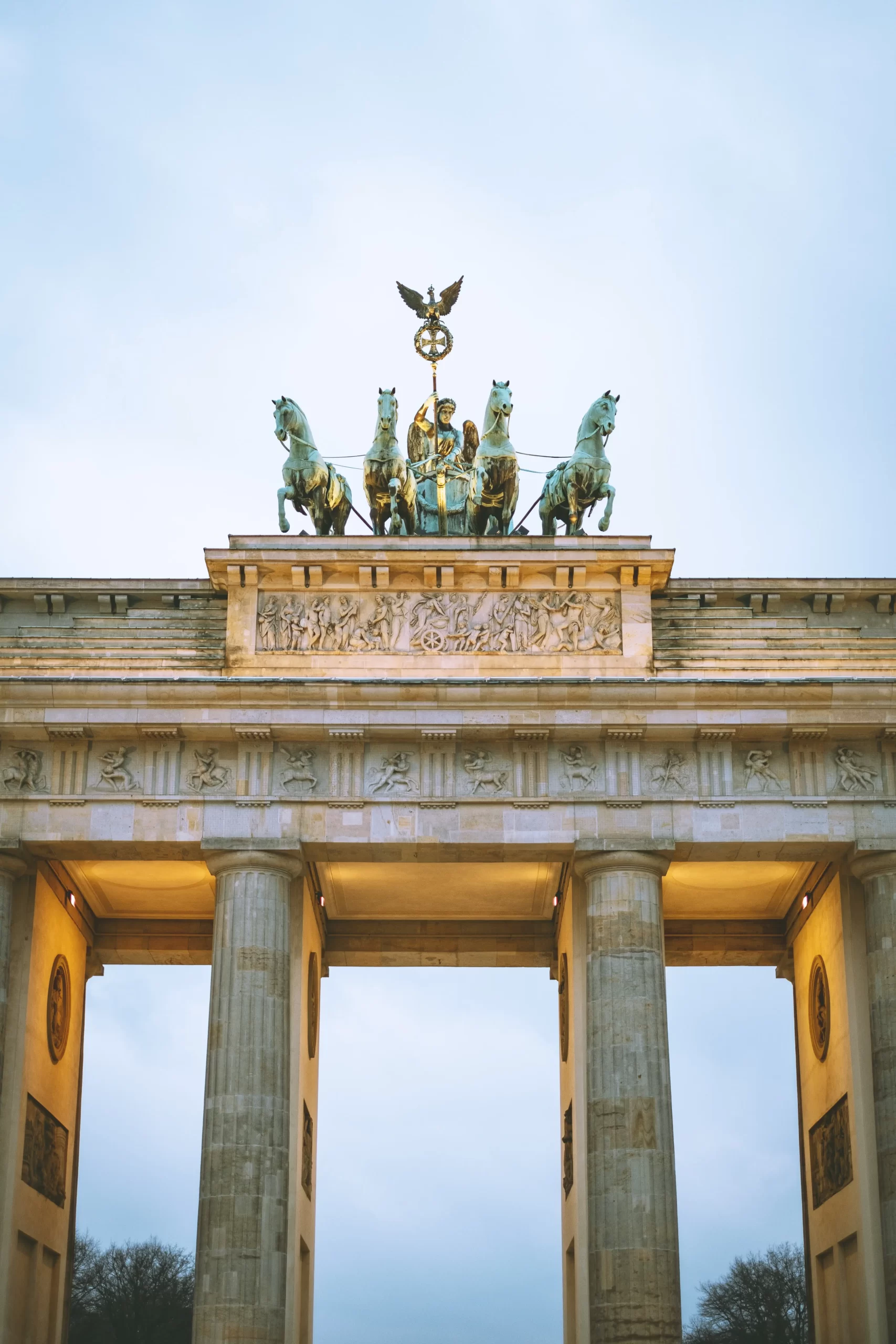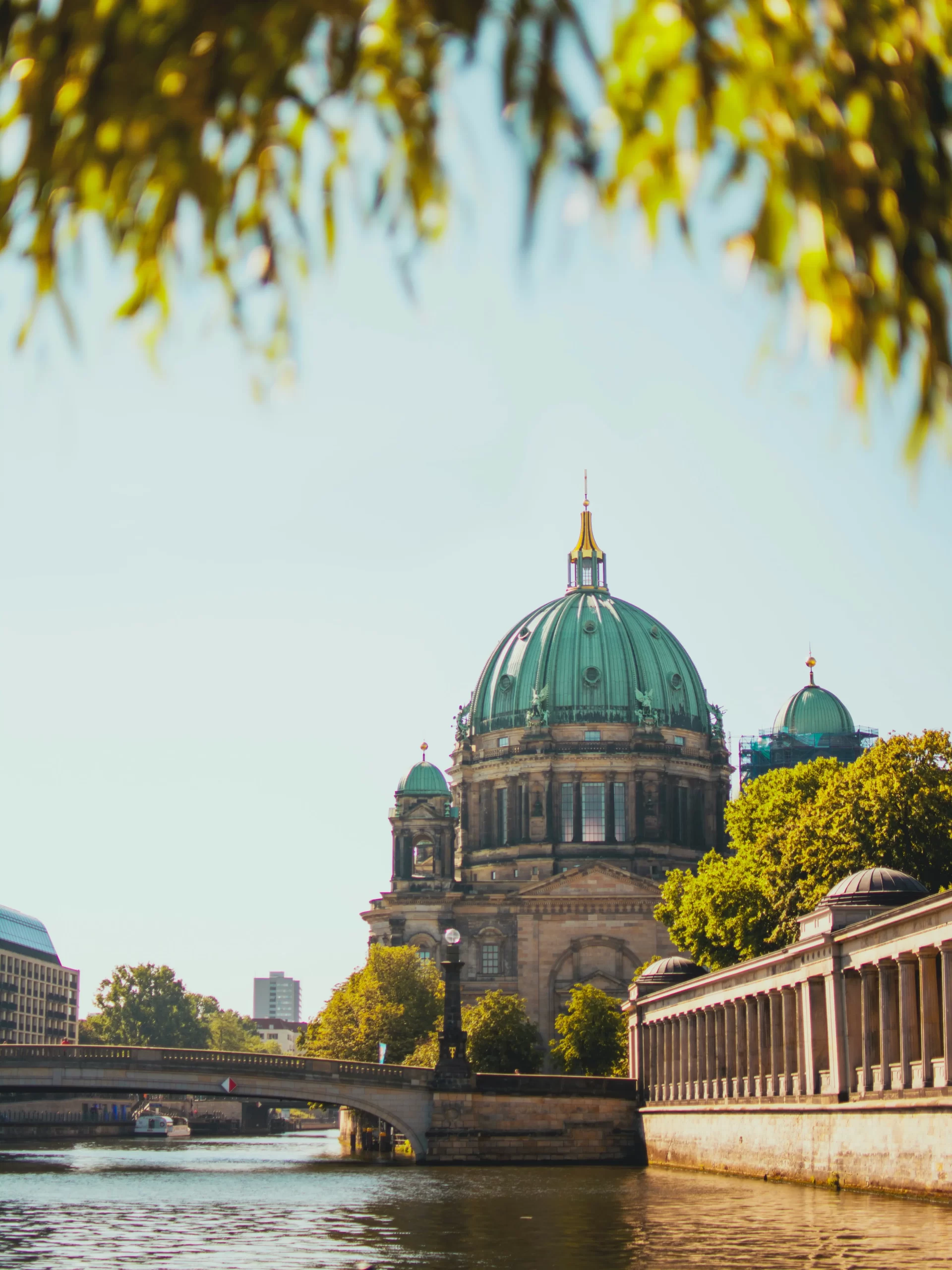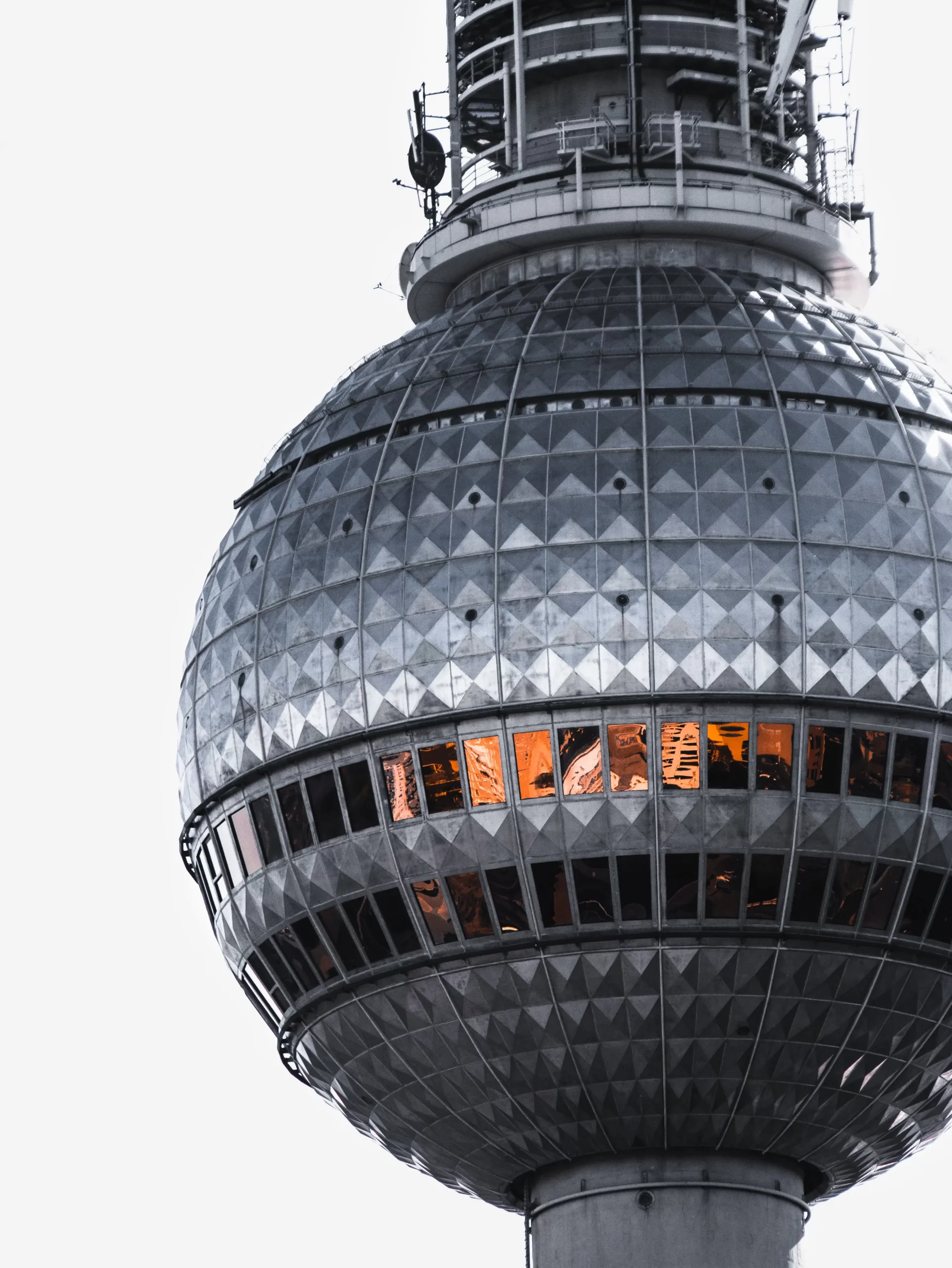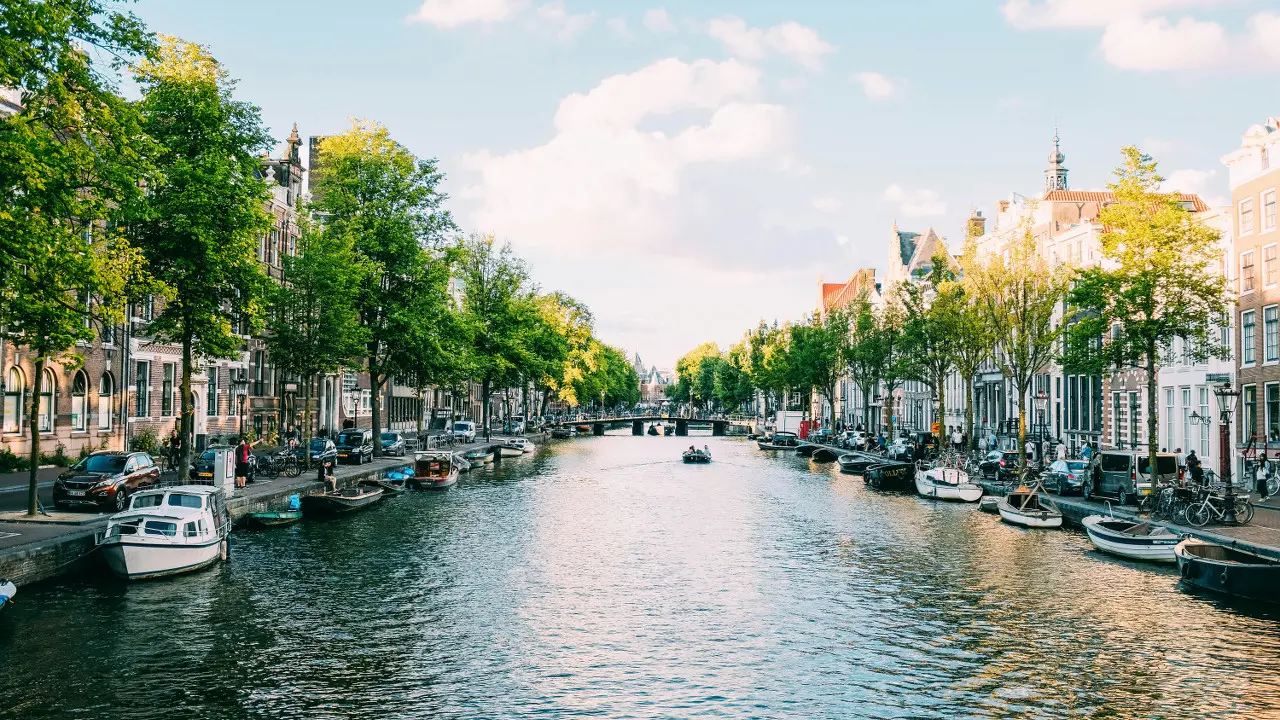ABOUT

Nora is from Hungary. She is a relocation and transition coach. She supports expats arriving in Berlin with all their bureaucratic to-dos, and later she helps them to rebuild their life abroad and live joyfully and with purpose. She speaks English (fluent), German (fluent), Hungarian (mother tongue), and Spanish (B1). She moved to Berlin in 2009 for love. 🧡
Moving to Berlin
Why did you move to Berlin?
I was already with Martin, my husband, and he had already been living in Berlin. We had a long-distance relationship for a year and a half. Although I was trying to avoid moving to another cold place, after spending several months in Greece and Spain without him, I realized how much I missed him and decided to give Berlin a shot.
What is Berlin famous for?
Berlin is a city full of history. The remains of the Berlin Wall are still present in multiple spots reminding people what should not happen ever again.
These days Berlin is both a party (electro) and tech capital of Europe.
The city is also famous for its diverse art scene.
What surprised you about life there when you first arrived?
I found people more straightforward and less polite here. Berliners tend to have a „raw“ communication style. I don’t think it is typical for the whole country, though.
How to find a job in Berlin?
I would say, these days, LinkedIn is the best way to find a job in Berlin. To be honest, I haven’t tried to find one for years as I have been working freelance for seven years.
How to find an apartment in Berlin?
As a relocation coach finding apartments for clients is part of my work. The best starting point is the site Immobilienscout24.de, which has by far the most extensive offer in long-term apartments.
These days, finding an apartment in Berlin is one of the biggest challenges of the relocation process. Especially as an expat who does not speak German, it’s tough to get affordable apartments. For a studio apartment, you can easily pay 1000€, and even a room in a shared apartment can cost you 6-700€.
How to get set up?
When I first arrived in Berlin, I did not have either a job or a work permit, plus it was 2009, so the market looked different from the way it does today.
Once you have done your city registration (Anmeldung), you can get a SIM card and open a bank account. N26, a German online bank, is the most popular option for foreigners as it is entirely English-speaking. People from the EU can open a bank account quickly. Citizens of many non-EU countries may need a residence permit to do so, though.
Was it difficult for you to get medical insurance?
The difficulty of getting medical insurance in Germany lies in the price. You can always get private insurance, which is cheaper than public one if you are in your twenties, but then it gets more expensive as you get older.
The monthly contribution of the public insurance is calculated based on your income. It can be more challenging to get into that system, but if you are employed, it should not be an issue.
What did you bring with you?
My whole life 🙂

Living in Berlin
What are the differences between Hungarians and Germans?
What are the main differences between Hungarians and Germans?
There is a difference between living in Berlin and living in Germany. The city is so diverse and full of foreigners that it can take longer to develop an opinion about Germans.
A couple of differences I experienced in my 13+ years living here. The family structure is different: in Germany, kids aged 18-19 usually move out of the family home even if they live in the same city. In Hungary, that is not the case, partly for financial reasons, partly because of the more “Mediterranean” family concept. Germans are more individualistic, and I find it harder to connect with them. What I like about German culture a lot, though, is that here if people are rich, you don’t necessarily see that because they don’t show off. In Hungary, money is something to show; even if you don’t have that much, people must see it all. 🙂
A couple of differences I experienced in my 13+ years living here. The family structure is different: in Germany, kids aged 18-19 usually move out of the family home even if they live in the same city. In Hungary, that is not the case, partly for financial reasons, partly because of the more “Mediterranean” family concept. Germans are more individualistic, and I find it harder to connect with them. What I like about German culture a lot, though, is that here if people are rich, you don’t necessarily see that because they don’t show off. In Hungary, money is something to show; even if you don’t have that much, people must see it all. 🙂
Do you need to speak German to live in Berlin?
No, you don’t necessarily need to speak German if you live in the city center (Mitte), but you definitely miss out on many aspects of city life if you don’t.
I had German classes back at school, so I had some grammatical knowledge already before moving here. But I could not speak at all. I took two intensive German courses in the first year (each was a month-long), and then I just practiced what I had learned with my new acquaintances. German courses are also a good way of socializing.
Back then, there were no language learning apps on the market. I did not even have a smartphone in the first two years. 😁
What are your favorite things to do in Berlin?
As a dog mom, I love spending time at the lakes around Berlin with my doggie.
I love browsing in the second-hand shops of Friedrichshain and Neukölln and at the various flea markets on Sundays.
When’s the best moment to visit Berlin?
Definitely Summer. In Winter, the city can be gloomy and depressing, but in the summertime, it turns into an outdoor festival. I have never experienced another city that changes this much from winter to summer.
Where is the best area to live in Berlin?
I have only lived in Friedrichshain, but I also like Prenzlauerberg with its lovely cafes and little shops. Neukölln and Kreuzberg are the party districts, but they are too crowded and crazy for my taste. Western districts like Charlottenburg are more elegant and full of beautiful old buildings.
Describe your favorite recreational activities.
I am a very active person and love doing all kinds of exercise. There is a subscription called Urban Sports Club, with which you can go to yoga classes, various courses, and individual sports activities (swimming, SUPping, etc.). You pay a monthly fee (there are different packages) and can exercise daily. I love it!
Can you tell me something about local culture that people might not know?
The German bureaucratic system is still very much paper-based. Although the pandemic has positively affected it – certain things can be done digitally- you still receive and must send postal mail regularly.
Also, if you want to buy a coffee in the city, don’t take it for granted that you can pay by card. 😉

Final Thoughts
Was it easy making friends and meeting people?
No, it was not easy for me initially for different reasons:
1. I had very close friendships back in Hungary, and superficial starting relationships were not satisfying for me.
2. I did not reach out to the right people at the beginning. Practically, I was waiting to meet great people, which did not turn out to be a good strategy.
3. Another reason why it’s not easy to create lasting friendships in Berlin is that a lot of people are only there for a few years, and after a while, as a local or long-term expat, you learn to protect your heart and don’t go too deep with people who are there for a short term. I said goodbye to so many friends after 3-4-5 years of intense friendship. It’s just too painful. Most of my friends are still expats, though.
1. I had very close friendships back in Hungary, and superficial starting relationships were not satisfying for me.
2. I did not reach out to the right people at the beginning. Practically, I was waiting to meet great people, which did not turn out to be a good strategy.
3. Another reason why it’s not easy to create lasting friendships in Berlin is that a lot of people are only there for a few years, and after a while, as a local or long-term expat, you learn to protect your heart and don’t go too deep with people who are there for a short term. I said goodbye to so many friends after 3-4-5 years of intense friendship. It’s just too painful. Most of my friends are still expats, though.
What does the future of Berlin look like?
More and more big tech companies are moving their headquarters to Berlin. Karl Lagerfeld once called Berlin “poor but sexy.” Life used to be very affordable here; you did not have to earn a lot of money to enjoy the city. You could be a poor artist and still be cool and enjoy the city. This is less and less the case these days. The housing situation causes a lot of headaches for both locals and foreigners. And services are also getting more and more expensive.
What has been the hardest aspect of living in Berlin?
I felt lonely at the beginning. Although I lived together with my boyfriend, I really missed having girlfriends around.
What should people consider before deciding to move to Berlin?
I would definitely recommend having temporary accommodation for at least the first three months because it will take a while to find an apartment.










